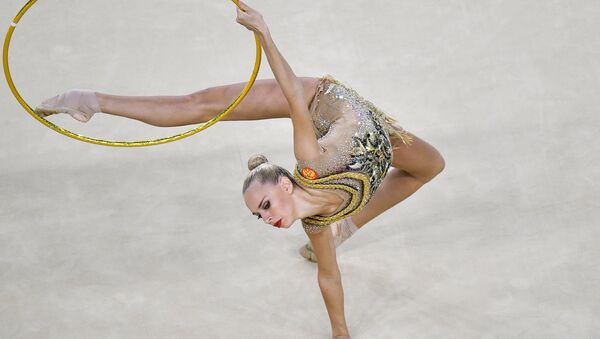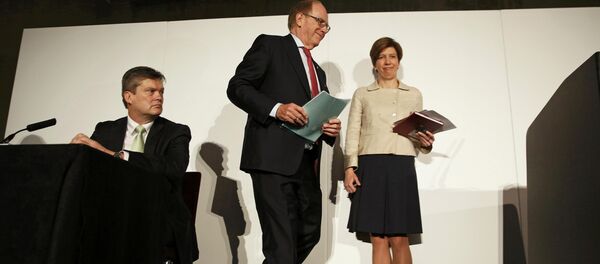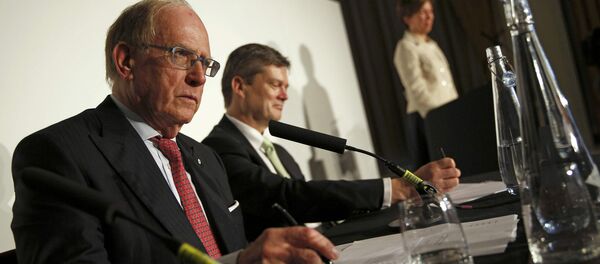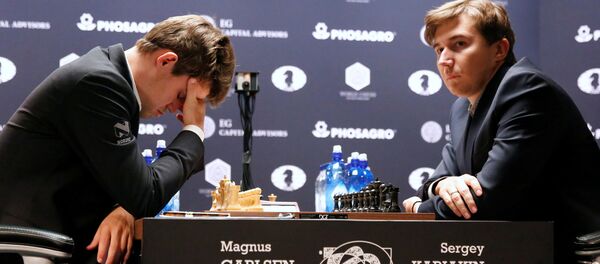MOSCOW (Sputnik) — Back in July, the World Anti-Doping Agency (WADA) independent commission headed by Richard McLaren issued a report, in which it accused Russia of allegedly running a state-wide doping program, but the document seriously lacked proof. The publication led to the ban on Russian athletes from taking part in international competitions including the 2016 Summer Olympics and a ban on all Russian Paralympic Team from participating in the major sports event of 2016.
Despite the fact that many Russian athletes were banned from the Olympics, in the final medal count, the Russian team still managed to finish in the fourth place, while country’s sportsmen had a chance to prove their strength and power in a number of other competitions throughout 2016.
Doping Accusations Lacking Proof
The first part of the McLaren report issued in July focused on three key findings. McLaren accused both Moscow and Sochi anti-doping laboratories of operating the state-run "sample swapping" system designed to falsify test results by a pre-determined labeling system. The Russian Sports Ministry was accused of directing, controlling and overseeing the sample manipulation. The Federal Security Service (FSB) and the Center of Sports Preparation of National Teams of Russia (CSP) are also alleged to have been responsible for running the swapping system.
In response to the release, Russian President Vladimir Putin said that many Russian athletes suffered unjustly without specific charges brought against them, adding that there was a campaign targeting Russian sportsmen "with so-called double standards and the principle of collective responsibility, which is incompatible with sports and with justice and basic legal principles."
Putin added though that there was no place for doping in sports and promised to cooperate with the investigation, while also setting up an independent commission comprising Russian and foreign experts to tackle doping-related problems in Russian sports.
After Russia made a series of steps showing its intention to cooperate with the international bodies and eliminate all cases of doping in sports, WADA went further and published the second part of the McLaren report in the early days of December.
The International Olympic Committee (IOC) thanked McLaren for the report and promised to reanalyze all 254 urine probes of Russian athletes from 2014 Winter Olympics in Sochi, while stating that all blood samples taken from 63 Russian athletes at the 2014 Winter Olympics had been negative.
Russia's Own Paralympic Games
In the Moscow region, Russian paralympians banned from the Rio games set a number of new world records while taking part in the alternative games organized by Putin’s order. Despite the fact that these results will not be added to the international protocols, the results speak for themselves, the sportsmen say, and show that the Russian sportsmen are among the strongest in the world.
Chess
The magnificent play of two young players, both just over 25 years old, attracted millions of watchers all over the globe, including the Russian president.
Carlsen managed to retain his World Champion title by winning in a tie-breaker.
Despite the loss, Karjakin is willing to challenge the title again whenever he has such possibility.
Football
The Russian national team finished in the last place in the group B after losing its grip following the first successful match against England that ended in a draw.
France, the host of the championship, got a strong support from the local crowd, and in a brilliant game defeated Germany in a semi-final 2-0, raising hopes among the French that the team may win the home championship.
However, in the final match, Portugal managed to defeat the hosts 1-0 when Eder scored in extra-time.
Figure Skating
In late March, the 2016 Figure Skating Championship took place in Boston. The Russian team finished first in the table of medals for overall placement thanks to Evgenia Medvedeva winning gold in ladies short program.
Medvedeva set a record score of 150.10.
Medvedeva’s teammate Anna Pogorilaya got a bronze medal in the same discipline with 139.71 points.
Rhytmic Gymnastics
Russia maintains its strong position as the world leader in rhythmic gymnastics. After the 2016 European Championships held in Israel, Russia once again finished in the first place receiving 7 gold and 1 silver medals.
Russia won the group all-round beating Belarus and Israel, while Russian junior team defeated Belarus and Italy.
In the individual all-round, Russia’s Yana Kudryavtseva defeated her teammate Margarita Mamun, scoring a total of 76.082 against 75.635.
What to Expect
With the accusations and pressure on Russian sportsmen amid the doping scandal, the athletes try to do their best in order not to pay attention to current situation in the world affairs and geopolitical games, repeatedly stressing that sports has nothing to do with politics.
In the next few years, Russia will be hosting a series of major sports events, such as the FIFA Confederations Cup in 2017 and the 2018 FIFA World Cup.
In 2018, there will also be Winter Olympic Games in South Korea, with fears emerging that Russian athletes may once again be banned from the event over the doping accusations. However, according to Russian Deputy Prime Minister Vitaly Mutko, a collective ban of Russian athletes from the 2018 games is "out of the question."








